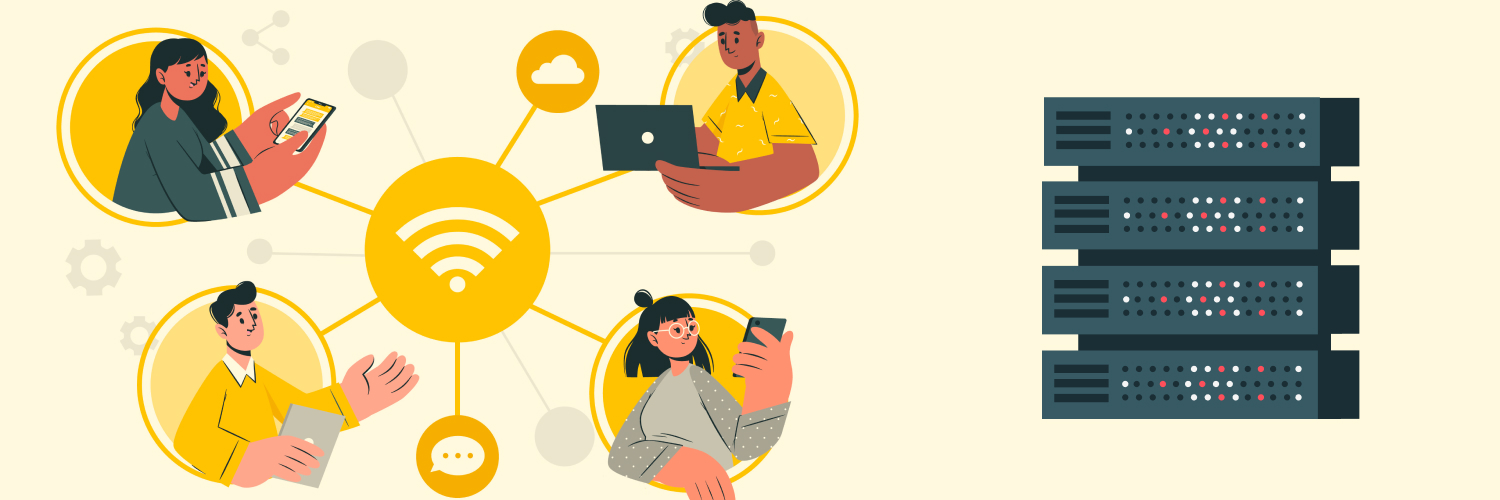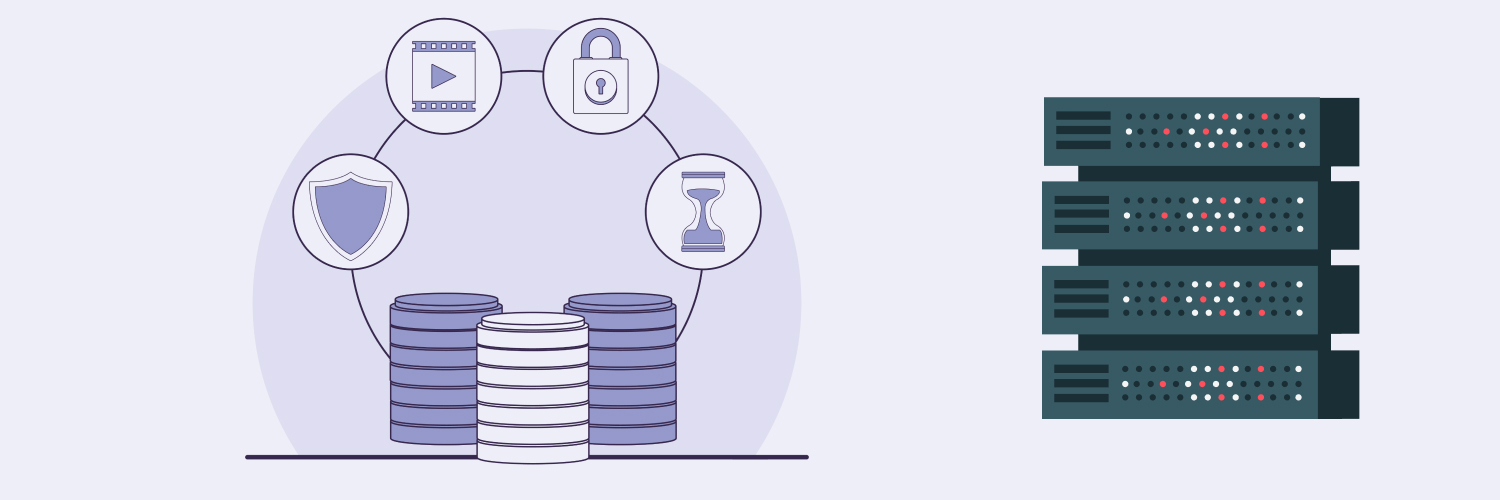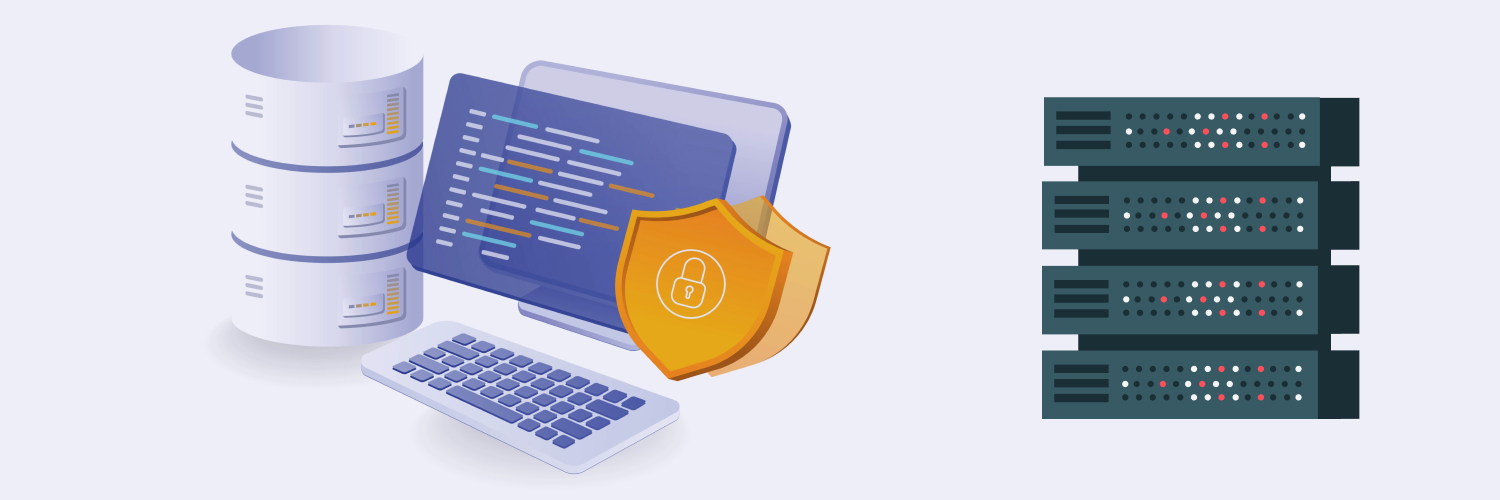Music Royalties In The Digital Age (Data In Music In 2023)
The music industry is a vibrant and dynamic landscape where creativity, expression, and innovation converge. Yet, challenges like the unauthorized use of copyrighted material often cast a dark shadow that stunts this sector’s sustainability. According to a study by the Recording Industry Association of America (RIAA), music piracy costs the US economy an estimated $12.5 billion annually and countless jobs. The staggering figures surrounding music theft highlight the need for effective solutions to safeguard music royalties, the lifeblood of artists and stakeholders in the musical realm.
With the advent of the digital revolution, music consumption has undergone a significant transformation that has noticeably boosted the industry’s growth. Yet, it’s increasingly simple for audiences to share and access music online across various devices, which has also opened the door for unprecedented levels of illegal music distribution. That’s why it’s important to seek out tools that address the challenges plaguing royalties and intellectual property protection. In particular, data collection and scraping technology help prevent the most common copyright infringements, ensuring that composers, performers, producers, and other stakeholders receive the compensation they rightfully deserve.
As you can see, the power of accurate data isn’t merely a technical detail; it’s the key to safeguarding the integrity of the music ecosystem as a whole. Let’s unravel how data-driven strategies can untangle these industry complexities, fostering a fairer and more transparent future for the creative minds shaping the soundtrack of our lives.
Music Royalties Meaning

Every time a song is used or performed through radio, live performances, digital streaming platforms, or even the silver screen, the rights holders get paid. This compensation is formally known in the music industry as music royalties, and it’s essentially how songwriters, composers, recording artists, and music publishers receive a fair income for the use of their intellectual property.
The amount of money that a music creator earns from royalties can vary depending on a number of factors, including:
- The popularity of their music
- The type of use
- The terms of their record deal
A report by the International Federation of the Phonographic Industry (IFPI) revealed that in 2022, music royalties generated $6.2 billion in revenue worldwide. These earnings play a crucial role in the economic well-being of the music industry. The income generated from royalties fuels the creation of new music, enabling artists to invest in their craft and pursue their passion without financial constraints. Moreover, music royalties contribute to overall economic growth by generating employment opportunities and stimulating related sectors such as music production, distribution, and retail.
What Does Royalty-Free Music Mean?

In a nutshell, royalty-free music involves a type of licensing where a one-time payment grants unlimited usage of a song or composition. In other words, when someone buys a royalty-free tune, they have the right to include it in their projects as many times as they want without incurring additional fees — or music royalties — for each use. This type of music is often available from online platforms or music libraries where people can purchase a license for a specific track or a collection of tracks.
Royalty-free licensing is a common resource to enrich a wide array of creative projects, including but not limited to:
- Video productions
- Podcasts
- Presentations
- Online content
- Software applications
- Videogames
If you’re an artist who’s considering using this kind of music in your projects, it’s important to note that there are various types of royalty-free licenses available, and the terms may differ from one provider to another. With this in mind, always read and understand the licensing agreement associated with the specific royalty-free music you intend to use before making a purchase. Stay vigilant for any updates or modifications to the terms and conditions set by your go-to music libraries as well. Taking the time to review the fine print thoroughly can save you from potential legal issues and prevent headaches in the future.
How Are Royalties Collected in the Music Industry?

Royalties are useful in tracking and compensating artists in a constantly changing industry. They provide not only financial compensation but also recognition of the intrinsic value of artistic creation. The five main types of music royalties are:
- Mechanical royalties: Paid for the physical or digital reproduction and distribution of music, including vinyl and CD sales as well as digital downloads
- Performance royalties: Paid for various forms of public renditions of a song, such as radio presentations and live concerts
- Digital streaming royalties: Paid when a song is listened to on an online streaming platform
- Print music royalties: Paid when sheet music of a composition is sold or reproduced
- Sync licensing fees: Paid for the use of music in synchronization with movies, TV shows, commercials, video games, or any other type of visual media
As mentioned earlier, the specific details of how royalties are calculated and managed can vary based on many different factors. Some of the most common factors are the country of production, the type of use, and agreements between the parties involved. In general, the administration of music royalties involves a complex network of organizations such as performance rights societies, mechanical rights agencies, and neighboring rights entities.
The persistent issue of royalty infringements in music
Royalty infringements remain a significant challenge in the music industry, threatening the livelihoods of artists, songwriters, and other rights holders. Despite the intricate system in place for royalty collection, unauthorized use and distribution of music continue, fueled by the ease of digital sharing and the intricacies behind tracking such violations. This issue deprives creators of their rightful earnings and undermines the fundamental principle of intellectual property protection.
Efforts to combat infringements on music royalties require a combination of legal measures, technological advancements in music data tracking and collection, and industry collaboration. With the emergence of new platforms and distribution methods in the music landscape, it is crucial to address and curb such breaches. Doing so will help foster a fair and sustainable environment for all those who contribute to the music industry.
Navigating music royalties in the modern landscape
The digital era has ushered in a dynamic array of platforms for music consumption, from streaming services to social media, each with its distinct royalty structures. Artists must now understand and optimize revenue streams in this complex ecosystem. Additionally, issues like unlicensed use and unclear ownership in online platforms further complicate royalty supply.
The rise of blockchain technology holds promise for transparent and decentralized royalty tracking, potentially mitigating some challenges. However, education, industry collaboration, and adapting to the evolving digital landscape remain crucial for creators to effectively navigate the intricate web of music royalties in the contemporary era.
Data Science and Music: Where Do They Intersect?

Nowadays, many industries use data to understand audience demographics, geographical preferences, and the impact of marketing strategies, and the music industry is not an exception. Data science is the cornerstone of the fight against music piracy and copyright infringement. Algorithms can help identify unauthorized use of copyrighted material, assisting rights holders in protecting their intellectual property.
Another exciting example of data usage in the music industry is the increasingly accurate recommendation systems implemented by streaming and social media platforms. Preference-tracking tools that use data science algorithms analyze users’ listening habits and contextual information to create personalized playlists and song suggestions. This, In turn, provides valuable insights into the audience’s likes and dislikes, enabling artists and labels to work their magic and craft their next big hit.
Why is statistical data important?
Data helps artists and record labels achieve success and sustainability in the music industry. It is particularly beneficial for ensuring proper music royalty distribution and accurately tracking music usage across various platforms. This helps guarantee that artists, songwriters, and rights holders receive fair compensation for their work. Apart from ensuring equitable payment for everyone in the industry, statistical data is also instrumental in:
- Audience insights
- Marketing and promotion
- Music composition
- Tour planning
In short, statistical data empowers labels and artists to make informed decisions regarding album releases, collaborations, and overall career strategies by relying on data-backed insights. A data-driven approach reduces risks and increases the likelihood of success in a highly competitive industry.
Music and Data Collection: Go-To Data Gathering Methods in the Music Industry

The music industry’s commitment to collecting meaningful data can help you adapt to constantly evolving music consumption trends. Here are some preferred methods for collecting data in music.
Streaming platforms analytics
If there’s one thing streaming platforms have mastered, it is gathering detailed analytics on listener behavior. This includes data on the number of streams, listener demographics, popular playlists, and geographic locations. This information helps artists and labels understand which songs are resonating with audiences and where.
Social media metrics
Most modern social media platforms offer valuable insights into follower engagement. Metrics such as likes, shares, comments, and follower demographics help artists gauge their online presence, identify trends, and tailor content to audience interests.
Surveys and feedback forms
Artists often use old, trustworthy methods to gather critical information to improve their craft. Surveys and feedback forms directly collect data from their audience, including preferences for future content, opinions on recent releases, and suggestions for improvements.
Ticket sales and concert data
For touring artists, ticket sales data provides insights into the popularity of different regions and the success of specific events. This information guides tour planning, helping artists maximize their reach and revenue.
Sales and download data
Traditional sales data from platforms that sell music downloads or physical copies provides insights into consumer preferences. This information is valuable for understanding which formats and channels are most effective for selling music.
Market research and industry reports
These studies can be valuable for strategic planning, offering musicians broader insights into music trends. They also arm labels with critical data on consumer behavior and market dynamics.
Ensuring Music Data Integrity: Do You Need a Data Quality Analyst (DQA)?

Faulty data can wreak havoc in a label or artist’s strategic plan to promote and position their music. That’s why ensuring data integrity when conducting an investigation is so important. It provides the necessary tools for accurate decision-making, royalty distribution, and understanding audience behavior in the music industry.
Although not universal, data quality management principles are generally applicable, and a dedicated data quality analyst, or DQA, may be helpful. But before making any decisions on whether you need one or not, you should consider:
- The complexity of your data sources
- How much data you’ll need to analyze
- Data integration challenges
- Regulatory compliance
- Data accuracy for royalty distribution
- Technology changes and upgrades
- Cross-functional collaboration
Handling massive data operations can be a daunting task, but a DQA can make it much more manageable. Although your need for a dedicated DQA may vary depending on the scale and complexity of the operations, any organization in the music industry must adopt robust data quality management practices. This involves a combination of technology, processes, and a commitment to maintaining accurate and reliable data throughout its lifecycle.
If you’re looking for a more useful tool to streamline music data gathering, consider using a proxy instead. It will enable you to anonymize and diversify requests to prevent data restrictions or bans imposed by streaming platforms or APIs. Rayobyte offers the best data center and residential proxies available so you can boost your data-gathering operations with a trustworthy provider.
Data in Music: The New Shield Against Unauthorized Usage

Data is a powerful tool to combat unfair and illegal practices that might limit a rights holder’s revenue. By harnessing sophisticated data analytics, you can effectively track and monitor the usage of intellectual property across various platforms. This safeguards against unauthorized reproductions and performances. It also facilitates a more equitable distribution of royalties to artists, songwriters, and other stakeholders.
Embrace data-driven strategies and web scraping technology to identify violations and collect the royalties you’re owed.
The information contained within this article, including information posted by official staff, guest-submitted material, message board postings, or other third-party material is presented solely for the purposes of education and furtherance of the knowledge of the reader. All trademarks used in this publication are hereby acknowledged as the property of their respective owners.






